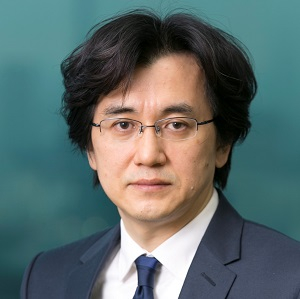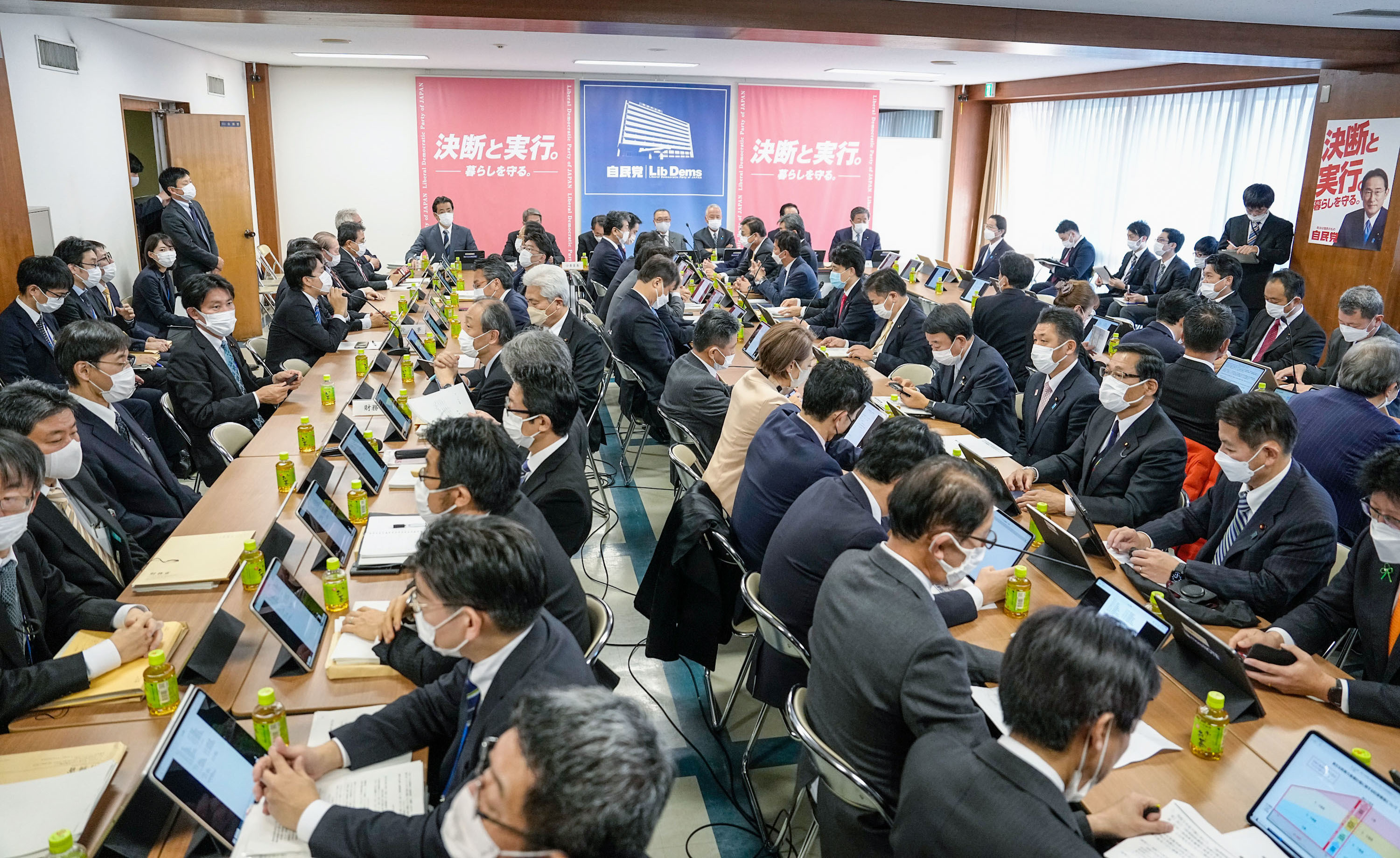- Article
- Political Institutions
Hereditary Lawmakers in an Era of Politically Led Policymaking (2)
June 23, 2009
The author has been pointing out for some time that there is a link between the prominence of hereditary lawmakers in Japan and the country’s bureaucratically led policymaking process. Establishing a policymaking system that is truly politically led requires that we reconsider the issue of hereditary politicians.
Hereditary Politicians and Bureaucratically Led Policymaking
People have been calling for some time for a switch from the current bureaucrat-led policymaking system to a politically led system. [1] Among other reasons, advocates of such a switch argue that it is unacceptable for bureaucrats who have not been vetted through the democratic process to exercise de facto control over the nation and that bureaucrats’ obsession with following precedent makes them incapable of coping with an era of change. While it is by no means certain that Japanese policymaking is really led by the bureaucracy (opinion among political scientists is divided), both of the above reasons are valid.
What is needed above all to establish political control over the formulation of policy is for the reins of political leadership to be held by individuals possessing a wealth of leadership prowess and insight, the ability to garner support from a broad range of voters, and a high level of policymaking ability. A parliamentary system gives politicians firm control of the administrative apparatus and is supposed to provide them with the minimum means needed to exercise this control appropriately while delegating authority to the bureaucratic organization. Any inadequacies in the legal system in this regard must of course be remedied, but the power to take such legal measures also lies in the hands of politicians.
As we have already seen, hereditary politicians now account for an extremely large proportion of Diet members, especially those in senior positions in the government and the ruling party. In the second half of this essay, I shall examine the implications of this situation for an era in which, it is hoped, politicians will take over from bureaucrats at the helm of the policymaking process.
(1) The question of democratic legitimacy
The biggest problem with bureaucratically led policymaking is that it effectively places the power to run the country in the hands of officials lacking democratic legitimacy. An era of politically led policymaking will require that democratically elected lawmakers lead the policymaking process while exercising governance over the bureaucratic apparatus through the cabinet and other means. It will be incumbent upon lawmakers who take posts in the government to represent the pluralistic values and interests that they absorb in the democratic process and to reflect these values in government policy.
On the other side of the debate, the principal argument wielded by those who refute criticism of dynastic politics is that hereditary lawmakers are democratically legitimate because they win their seats in elections. If voters truly did not want hereditary politicians, then they would not vote for them in elections; other people should mind their own business. This line of reasoning enables former Prime Minister Junichiro Koizumi, for example, who criticized the system whereby so-called special postmasters hand down their positions to their offspring, to defend his nomination of his own son as a candidate for his Diet seat by observing that Diet members, unlike special postmasters, are democratically elected.
In other words, the democratic legitimacy of Diet members is the biggest supporting argument both for politically led policymaking and for hereditary lawmakers. Yet the unusual prominence of hereditary lawmakers poses serious problems in terms of their democratic legitimacy, for it raises doubts as to whether the process by which they are elected is entirely democratic.
To be sure, Japan has an adequately democratic electoral system, and hereditary politicians can be said to undergo a rigorous democratic process in the sense that they win election by securing votes from the electorate. Nevertheless, the high win percentage of hereditary politicians in past elections makes it hard to deny that political heirs replete with campaign organizations, name recognition, and fundraising apparatus enjoy an enormous advantage in actual elections. Real democratic competition, with various candidates competing against one another on an equal footing, may be lacking.
As noted above, our constitutionally enshrined voting rights include not only the right to elect but also the right to be elected. In a nation where the right to be elected is inadequately protected, the right to elect is devoid of meaning. To cite an extreme example, the lone candidate in last year’s presidential election in Zimbabwe—President Robert Mugabe—won by a landslide, with 85.5% of the vote. Even if the election had been conducted in a rigorously open manner, however, no one would consider Mugabe to have any democratic legitimacy.
It is virtually impossible for a candidate to win an election without the endorsement of a political party under the current single-seat constituency system. Those who do receive the endorsement of either the Liberal Democratic Party or the Democratic Party of Japan, on the other hand, are highly likely to win. An undemocratic endorsement process consisting of a (family) background check conducted behind (the party’s) closed doors could hardly be said to uphold every citizen’s right to run for office. The DPJ, of course, has made frequent use of an open system for recruiting candidates ever since the party was established, and the LDP has also been using an open system lately, but a closer inspection reveals that many of these “open” races are fixed.
With such constraints on the right to be elected, the right to elect is exercised only in a highly restricted manner after the field has been reduced to the two candidates who have a realistic chance of being elected. Even voters who are opposed to hereditary politics often end up voting for the son or daughter of a former lawmaker when the party they support offers no alternative.
Let us look at a simplified example. Suppose that an election is fought mainly over the issue of whether to introduce a consumption tax. A single-seat constituency system usually produces a two-party setup, [2] so let us say that candidate X of party A is a nonhereditary Diet member who favors the introduction of the tax, while candidate Y of party B is a hereditary candidate who opposes the tax. Voters who oppose the consumption tax and wish to make their voices heard on the election’s key issue will have no choice but to vote for the hereditary candidate Y, even if they disapprove of hereditary politics.
Thus, the ostensible democratic principle that the people elect their own representatives has, under the current electoral and party systems, largely become a fiction. Under the single-seat constituency system most voters are simply presented with a choice between two candidates selected from within the two major political parties. The internal machinations of political parties—organizations never mentioned in the Constitution—are exerting an extraordinarily powerful influence. People will continue to have major reservations about the democratic legitimacy of hereditary politicians as long as it is so easy for the offspring of past and present lawmakers to gain the endorsement of a major political party.
Democratic legitimacy is of decisive importance both for the principle of political leadership and for hereditary politicians. To dispel these reservations, it is important that parties put in place open and democratic processes for selecting candidates. Every effort must be made to level the playing field for political candidates, so as to ensure fair and intense democratic competition.
(2) The relationship between hereditary politicians and the bureaucracy
Bureaucrats, like lawmakers, have an important role in the policymaking process. The idea of passing the leadership of this process from bureaucrats to lawmakers (particularly the cabinet) is at the heart of the debate over shifting from bureaucratically led to politically led policymaking. In conceiving a path to political leadership, and in considering the policymaking ability of the hereditary lawmakers who currently dominate Japanese politics, we must always include consideration of the issue of how to reform the division of roles between politicians and bureaucrats.
Bureaucrats, as I have noted already, are not selected through a democratic process. The people do not possess the right to elect bureaucrats. If one interprets the right to be elected as “the right to become a bureaucrat,” however, it is possible to conclude that the door to a bureaucratic career is open to a broader range of people than the door to a career as a lawmaker.
Anyone who graduates from university and passes the national public service examination can become a bureaucrat. Indeed, the resumes of senior officials at ministries and agencies reveal that, although the exam-centric recruitment process favors graduates from certain universities, in terms of the household environments in which they were raised bureaucrats are a more diverse group than cabinet ministers and ruling-party executives, in whose ranks hereditary politicians figure so prominently. There are very few hereditary bureaucrats, the only exception being the Ministry of Foreign Affairs, which used to hold its own special examinations. Some ministries and agencies even have internal rules prohibiting the hiring of employees’ offspring.
In Kakyo ( China’s Examination Hell: The Civil Service Examinations of Imperial China ) (1963, Chuo Koron), Ichisada Miyazaki notes that the introduction by the Sui emperor in sixth-century China of “imperial examinations” for selecting bureaucrats was prompted by the monopoly that aristocrats had established on bureaucratic posts, which gave them such influence that the emperor was unable to exercise real power. The emperor surmised that, to combat the aristocracy and place control over policy planning in the hands of what would today be called the cabinet, it was necessary to recruit as government officials talented personnel from a wide range of social backgrounds. In this sense, Japan’s current policymaking system can even be seen as a finely balanced mechanism in which the cabinet and the ruling party, dominated by hereditary politicians, and the bureaucrats, selected by examination from a broader pool of candidates, complement each other.
In the era of bureaucratic leadership, the policymaking role of Diet members consisted simply of reading out memos written by bureaucrats. In the era of political leadership, however, lawmakers will need the ability to formulate policy by, conversely, making full use of bureaucrats. As research of hereditary CEOs shows, if we are to increase the ranks of lawmakers suited to the era of political leadership, it is not enough to choose lawmakers from the limited pool of current politicians’ offspring. We need a mechanism in which outstanding lawmakers are chosen through fierce, multi-faceted competition from a much wider pool even than that from which bureaucrats are drawn.
To promote political leadership in policymaking haphazardly without giving proper consideration to this reality, or to abolish the system by which a wide range of people are able to become bureaucrats, would likely produce a situation similar to that prior to the introduction of imperial examinations in Sui-dynasty China, with real power in the hands of hereditary politicians and the prime minister unable to secure personnel to support his efforts to exercise leadership. In that sense, it may be more than mere coincidence that hereditary lawmakers feature so prominently among ruling-party critics of the bureaucratic system.
Reforms to the bureaucratic system must go hand in hand with changes in the prominence of hereditary politicians if we are to ensure that the switch from bureaucratically led to politically led policymaking does not result in a shift of power, to use the analogy of the Sui dynasty, from bureaucrats chosen through the imperial examinations to aristocrats chosen through family connections. The key goals of any reforms, as I have noted, must be to ensure democratic legitimacy and plurality, to free policymaking from vested interests, and to establish intense competition among those seeking policymaking positions. If hereditary politicians were to maintain their dominance and talented personnel were to cease becoming bureaucrats without these goals having been achieved, Japan would end up in a situation like that of the Sui dynasty in China before the introduction of imperial examinations.
[1] “Politically led” here means “led by the cabinet (the prime minister),” not “led by the ruling party” or “led by politicians.” I shall not go into this question in detail.
[2] To be precise, Duverger’s law, the applicability of which to real elections has been firmly demonstrated, simply predicts that elections in single-seat constituencies will be fought between two leading candidates. It does not predict that this necessarily results in a two-party system. The confrontations at the 2005 lower house election between rebel lawmakers stripped of the LDP’s endorsement for opposing postal privatization and the LDP-endorsed “assassins” nominated to defeat them clearly show this trend in action.




